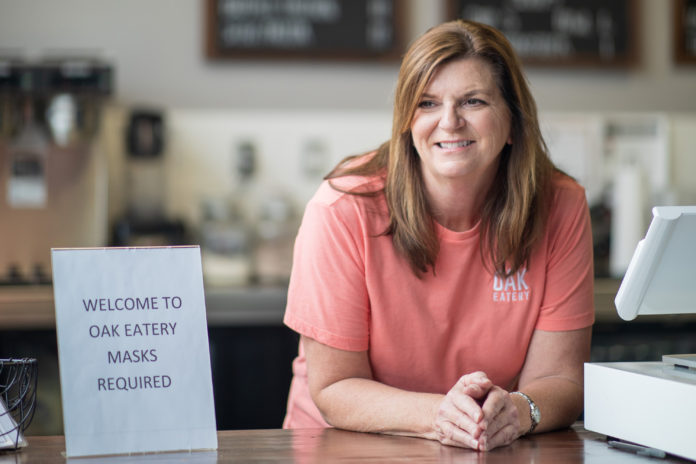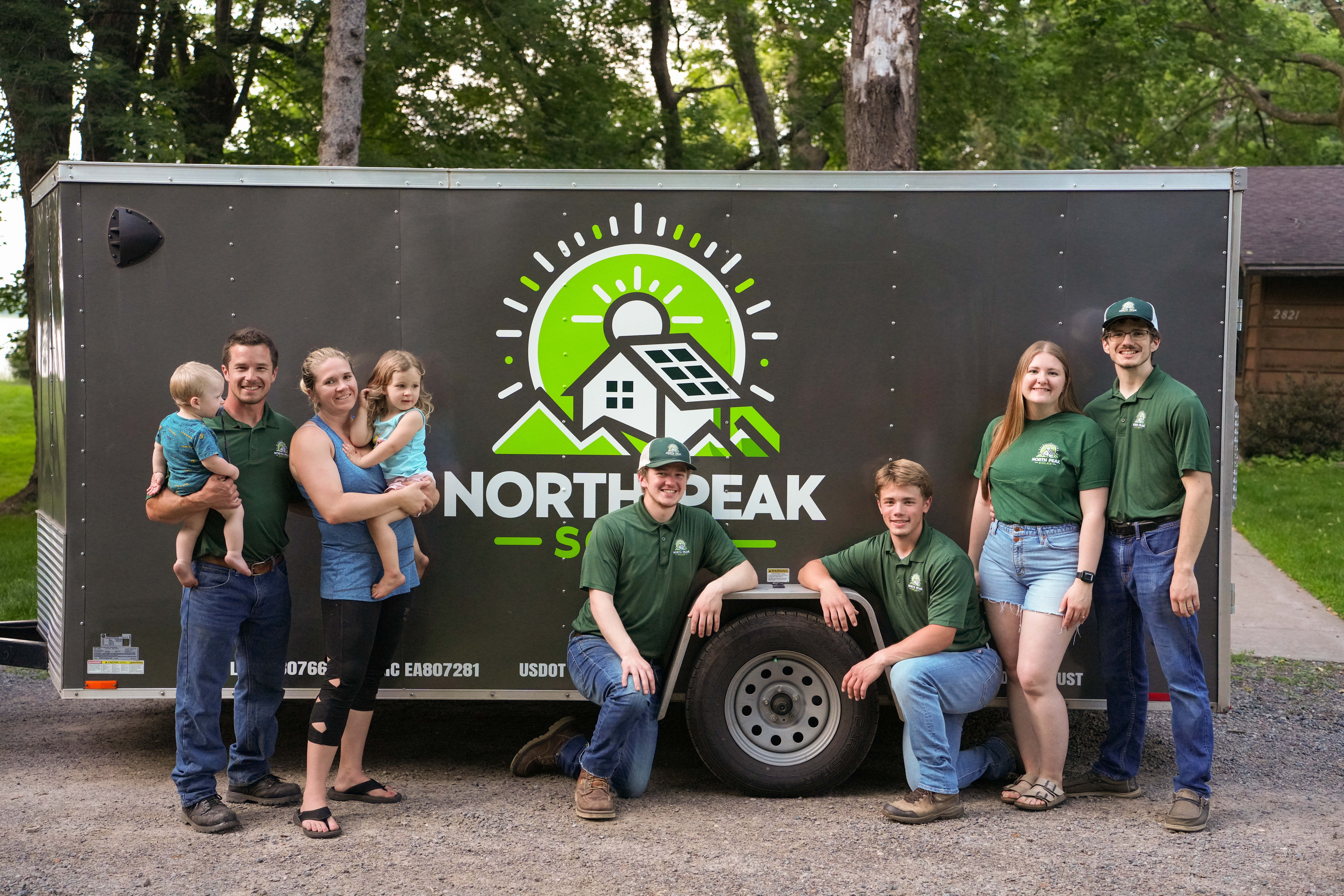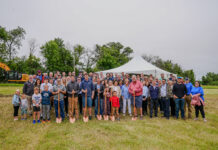Change. It’s been synonymous with Covid. Here, five Hamel and Medina businesses share their stories of change to adjust to the new normal.
OAK Eatery adds staff due to increased business
Dawn Nelson, owner of OAK Eatery, reflects on how COVID-19 has impacted her restaurant. “In the beginning, it was kind of a shock that they were closing us down to curbside. . . the way you’re used to doing business for four years, and then all of a sudden the whole concept is changed. That was hard.” Nelson then explains because OAK Eatery is a counter service restaurant, there was already a strong takeout business prior to the pandemic. “It was easier for us to change and adapt to that than people [restaurants] who were full service. It was a transition but we adapted quickly and we never had to close our doors. We were very fortunate.”
When it came to adjusting restaurant processes for COVID, Nelson asked, “How can we safely do this to keep our staff safe and our customers safe?” Aside from minor modifications — hours, temporarily suspending breakfast, and losing one table on their outdoor patio — things have remained relatively stable. “Business has stayed strong, [and] we have stayed healthy with our COVID prepared plan in place. We require our staff to wear masks. We ask our customers to wear masks as they come in and are seated at a table.”
Nelson describes the biggest challenge: “Converting everything over to takeout. . . we realized that with other restaurants closing down, our business ramped up. We were adding staff instead of furloughing people. Yeah, we went the other direction. . .we have an amazing following in our community that wanted to make sure that we were going to stay, they made sure they were coming to us one, two, three times a week. So the generosity from our community was amazing. We have the best customers.”
When asked if there was a silver lining to all this, Nelson talked about the day before the governor was going to shut down restaurants to curbside pickup. She met with her full time staff. “Because I’ve never been through a pandemic before, I asked them, ‘Do you want to stay open, or do you want to close down?’ We took a vote, and everyone unanimously said they wanted to stay open. We’re a small, family-oriented restaurant. I did pose the question to them [the employees] because the health and safety of my staff comes first. I just wanted to make sure it was their decision, not mine; that it was all of us together in it before we would move forward with it. And they all voted yes.”
Nelson also noticed another bit of good. “I think during COVID everyone’s kind of re-setting themselves. I think we’ve seen the best in humanity. People are being more patient, more understanding.”
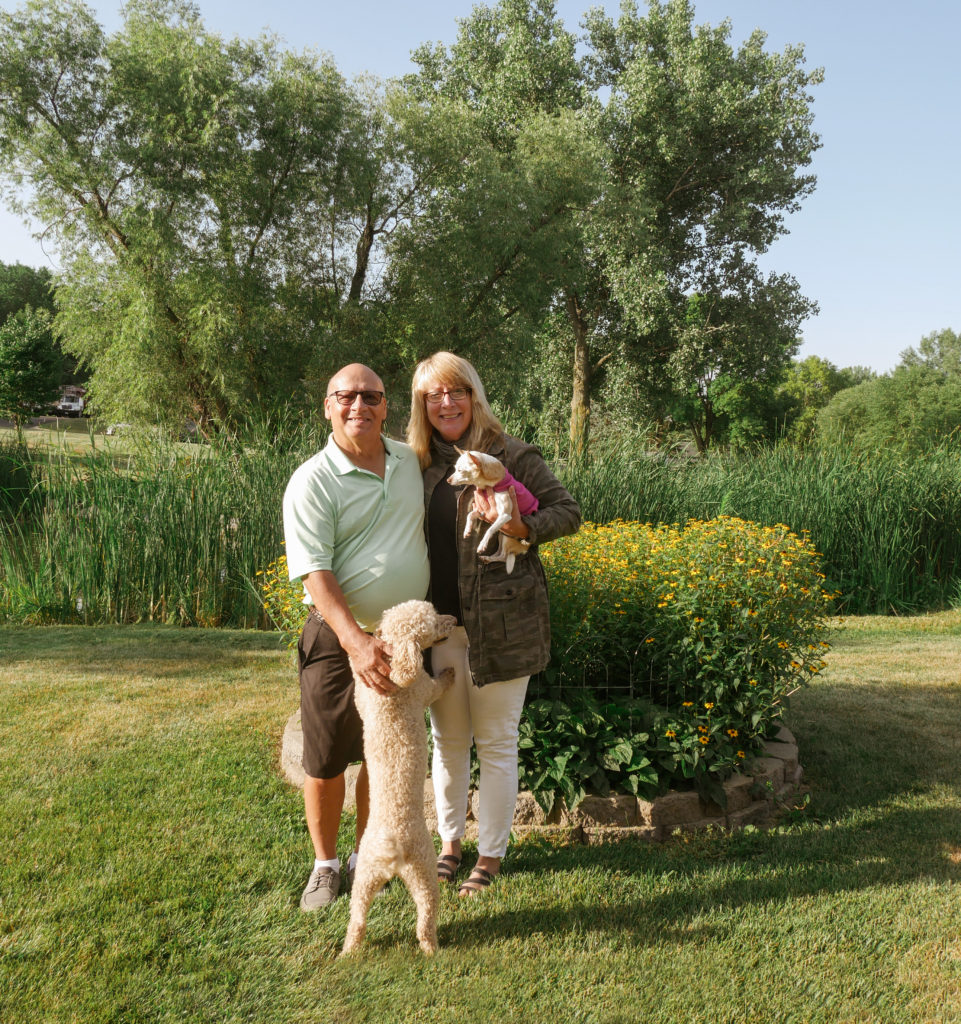
Barbara Roth and Alvin Baumgartner from PupTown learn a new business in unprecedented circumstances
Barbara Roth and Alvin Baumgartner recently took over as the owners of PupTown. The previous owners advised them to anticipate a very good month in March because that’s when people travel for spring break, so PupTown hired additional staff in anticipation of this busy season. Roth remembers, “Late March is when COVID-19 hit home for all of us in the U.S. One by one, people cancelled their scheduled boarding as they could not travel.” But Roth and Baumgartner consider themselves fortunate. “We had two very good months to start our business of dog daycare, boarding and grooming. With the PPP that was offered, we have been able to ‘hold our own’ at this point.”
Roth and Baumgartner’s biggest challenge has been having to reduce staffing to part time. “Each week, we look at the prior week’s numbers to anticipate the following week’s staff-to-dogs ratio.”
Roth describes their second biggest challenge: managing anxiety. “As owners of a new business this was never something we could have anticipated. We have learned a lot about ourselves, and about the state of our country. . . the economy, politics, and how fragile everything really is. 2020 has really been an unbelievable year.”
However, these challenges also came with an upside. Roth shared, “The silver lining has been plenty. We have learned we work with really good people here at this small business.” She describes witnessing the genuine love of others these past four months, “One of our employees is a young woman who lives with her parents. She offered another employee, a young mother, to loan [her] money if she needed it.”
Roth continued, “We have learned that our clients and their dogs are top-notch!!” Clients have been showing their support for PupTown — some even gave local business gift cards to Roth and Baumgartner as an extra thank you.
From a business perspective, Roth and Baumgartner feel that the slow period has been beneficial. “[COVID-19] has allowed us to “slow down” a little each day and really get to know our clients and this business. . . I mean really talk.” Roth and Baumgartner have been using this extra time to reach out to former clients and have engaging conversations with them. “People seem to be taking a little more care when talking with each other and are looking out for their fellow man.”
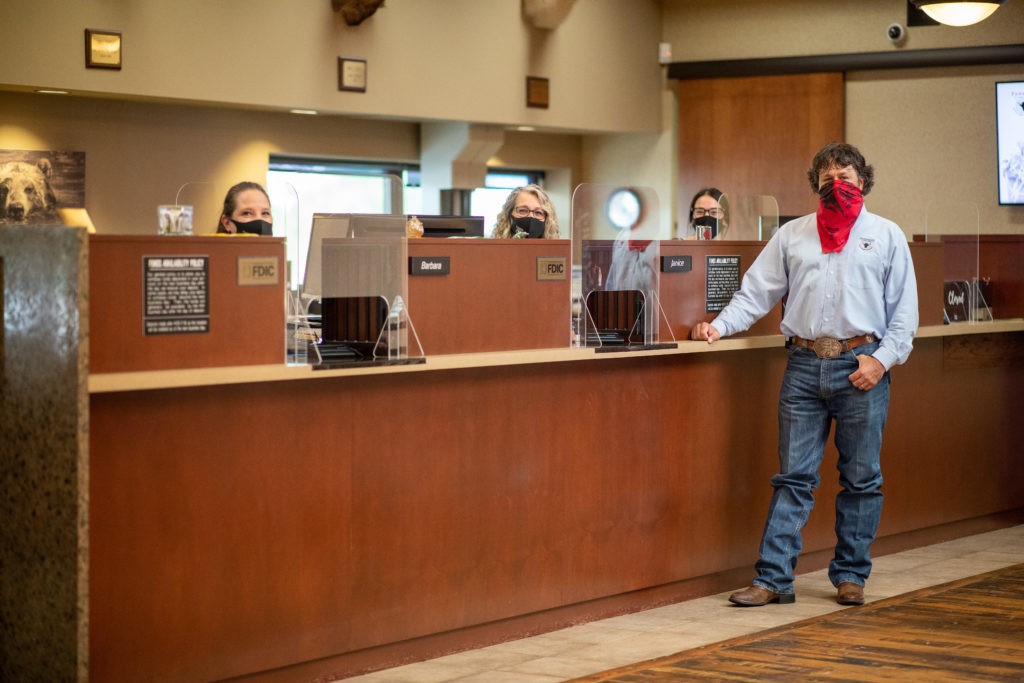
Farmers State Bank of Hamel adapts quickly to new banking policy
Rowdy Dorweiler, president of Farmers State Bank of Hamel, talks about the biggest challenge his bank has faced. “That’s a tough one. . . just the fact that it came on so quick, and that there were so many unknowns in the beginning.” When the government started rolling out programs rapid-fire, banks were forced to adjust with the rules changing almost every day. “Some of them [government programs] were done in pretty short order, so banks didn’t really have time to prepare for it. It was a scramble to not only manage how to safely go about our normal routines, but also rolling out these complex programs that the government pushed through the banking industry.”
Dorweiler describes a surprising outcome of the new banking programs. “Community banks as a whole have demonstrated that they are able to service the needs of their customers much better than the larger banks.
“The FDA Paycheck Protection Program (PPP) is a good example. We were able to start participating in that and helping out our community long before the big banks could.” Farmers State Bank of Hamel gained a number of new customers because of this; many were getting no response from their big banks. “They would come to us and we would take care of them, oftentimes in the same day, where they couldn’t even get a call back from their [big] banks for weeks.”
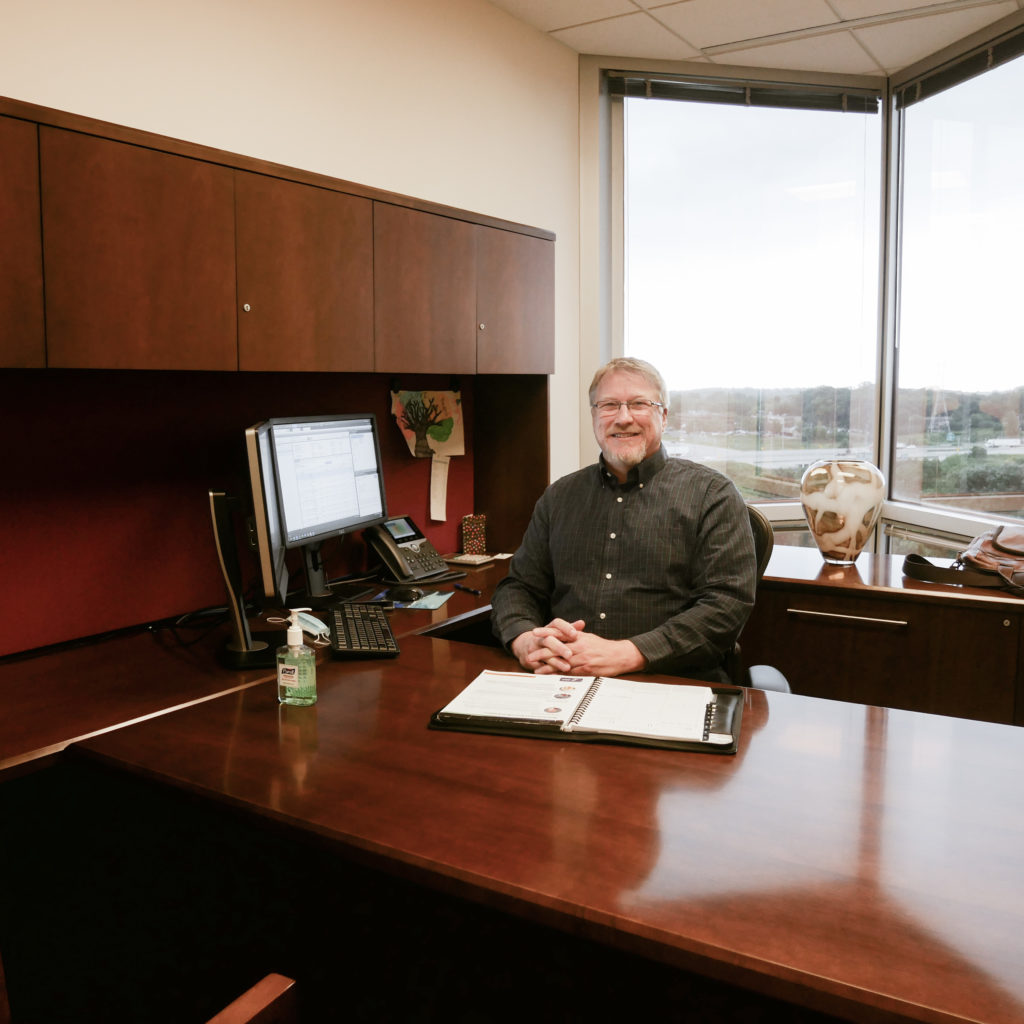
Baird Private Wealth Management maintains relationships via Webex
Kurt Kobes, a financial advisor at Baird Private Wealth Management explains the impact Covid has had on his job. “The last three months we have not been able to work from our office. And, we were asked not to meet face to face with clients, we don’t want to put them at risk with the pandemic.”
“The biggest challenge has been the relationship with my clients is built a lot on face to face interactions — that’s part of the service. Developing that strong relationship, it is enhanced when you are able to meet face to face.”
When asked about using Zoom in place of in-person meetings, Kobes replied, “Well, Zoom has some security glitches, so we’ve had to use Webex, that’s a little bit more safe and secure. It’s nice, but it’s not the same as being there face to face with them, shaking their hand.”
Kobes describes the bright side: “Other than not having to commute an hour and a half to work each day, it [working from home] helps me to slow down and just focus on what are the most important things in life, what things have the most value and reprioritize my life a little bit. It’s been a great way to reflect. It’s been nice to be able to slow down a bit.”
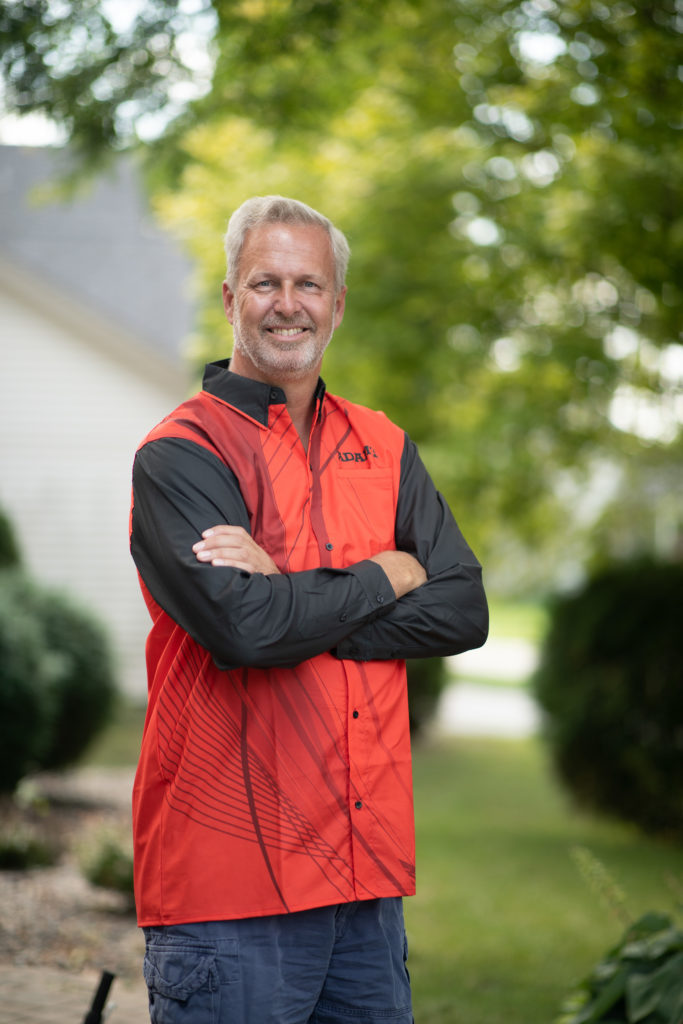
Adams Pest Control experiences best year despite losing one of their largest customers
Todd Leyse, president of Adams Pest Control, explains how COVID impacted his business. “We cut back some in April with about twenty percent of our workforce affected in one way or another, but we were deemed essential so we kept going, albeit in a new normal.
Adam’s Pest Control faced an issue early in the pandemic. “One of our largest customers temporarily closed and scaled their contract back tremendously, yet basically asked us to keep providing the same level of service. Other commercial accounts canceled due to being closed or (for residential contracts) homeowners being laid off. Still others were just concerned about the future, especially as they saw their retirement funds drop.”
Leyse lists the positives:
People are spending more time at home so they are seeing more pests and wanting them dealt with.
Less traffic means our technicians are wasting less time in traffic.
Fewer companies are buying advertising so we receive a lot of bonus spots [reduced cost advertising] — more bang for the buck!
Less turnover because employees are afraid to go where the grass is greener. Ten of our former employees are on unemployment now.
“The bottom line is we are having one of our best years ever, even though COVID certainly had a significant negative impact. We cannot complain. Others have it much worse than us,” Leyse concludes.
There are underlying themes in these stories — many businesses talked about slowing down and taking more time. Others mentioned a greater appreciation for customers. All of them demonstrated creativity in answering these unprecedented challenges.



